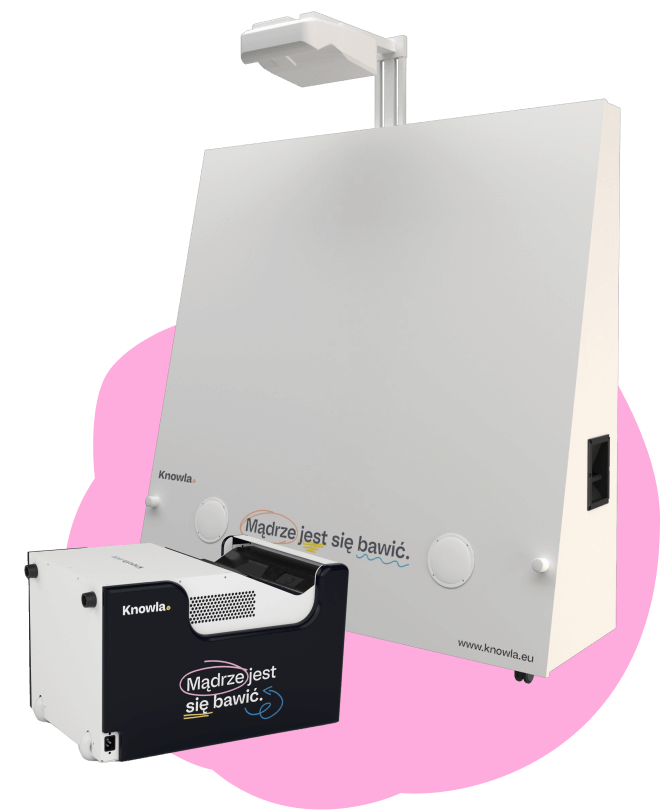Zbliża się koniec roku szkolnego, więc to jest jeden z najlepszych momentów, żeby podsumować razem z uczniami miniony etap oraz pokazać im ich osiągnięcia i miejsca, nad którymi muszą jeszcze trochę popracować. Te kilka słów feedbacku (czyli informacji zwrotnej) potrafi czasem odmienić podejście do siebie czy przyszłej nauki, dlatego tak ważne jest, by podejść do tego poważnie, ale też z uśmiechem.
Sprzężenie zwrotne
Feedbackiem w edukacji jest ocena opisowa – kilka zdań, które wyłuszczają dobre i złe strony danego rozwiązania, pracy czy zachowania (w tym współpracy z innymi). Zadaniem feedbacku jest wskazanie miejsc, które wymagają zmiany oraz tych zachowań, które powinny być kontynuowane.
W biologii pojawiają się dwa pojęcia, które bardzo mocno nawiązują do tego procesu: dodatnie i ujemne sprzężenie zwrotne.
W dodatnim sprzężeniu zwrotnym staramy się zwiększać wszelkie zmiany i wyniki, np.: motywując ucznia do rozwoju w danej dziedzinie i uczestniczenia w konkursach. Pokazujemy, że wysiłek ucznia został zauważony, wskazując dobre cechy pracy. Natomiast w sprzężeniu ujemnym dążymy do ich zmniejszania i redukcji, np.: starając się ograniczyć jego nieuważność na zajęciach czy zmniejszyć liczbę popełnianych błędów ortograficznych.
W przypadku feedbacku mówimy o feedbacku pozytywnymi i negatywnym.

Jak dawać dobry feedback – wskazówki
- Przygotuj się do dawania feedbacku! Przeanalizuj daną pracę, umiejętności ucznia lub zachowanie. Wyłap najważniejsze elementy. Zastanów się, co chcesz pochwalić lub gdzie widzisz punkty do poprawy.
- Doceniaj! Zwróć uwagę na to, co poszło dobrze. Pochwal talenty, sukcesy, nawet te ukryte przed nim samym. Zauważ i wskaż wysiłek, który włożył w swój rozwój.
- Nie krytykuj i nie gań! Konstruktywna krytyka jest wskazana. Zwłaszcza merytoryczna i konkretna, bo wskazuje możliwy kierunek rozwoju. Nigdy nie przekazuj samej negatywnej aury. Znajdź coś dobrego. Staraj się też nie używać oceniających sformułowań.
- Skup się na akcji i przyszłości! Rozważ, jak można ulepszyć pracę, umiejętności lub zachowanie. Co może zrobić uczeń, ty lub co możecie zrobić wspólnie, by uczeń mógł się dalej rozwijać. Dawaj praktyczne rady.
- Zainspiruj oraz zachęć do dalszego działania!
- Bądź szczegółowy! Unikaj ogólników! Nawiązuj do konkretnych wydarzeń, sytuacji, umiejętności, fragmentów pracy lub rozwiązania.
- Zaznacz konkretnie: co i za co oceniasz w danym miejscu! Precyzyjnie wskazuj, czego dotyczy dany feedback lub jego składowe. Wskaż, co zauważyłeś, jakie to było oraz dlaczego się na tym skupiłeś.
- Nie odpływaj za daleko! Staraj się, by każdy feedback był adekwatny do tego, co oceniasz. Nie wybiegaj zbyt daleko od tematu.
- Postaw na unikalność! Niech feedback dla każdego ucznia będzie wyjątkowy i niepowtarzalny. W ten sposób pokażesz swoje zaangażowanie oraz zainteresowanie w indywidualną pracę każdego ucznia.
- Bądź obiektywny! Nie daj się zwieść swoim animozjom wobec ucznia lub jego rozwoju w innych dziedzinach, których nie oceniasz w tej chwili.
- Dodaj personalny aspekt! Pokaż swoje emocje lub opinie. Wyraź swoje uznanie za włożoną pracę ucznia.
- Zadawaj pytania! Feedback nie musi być monologiem. Dzięki pytaniom sam uczeń może zastanowić się głębiej nad danym problemem.
- Zachęć do dalszej rozmowy! Zaproponuj konsultację lub pomoc. Jeśli istnieje taka potrzeba, szerzej porozmawiajcie o przekazanym feedbacku. Być może ty coś źle zrozumiałeś lub twój uczeń nie do końca wie, co zrobić z przekazaną informacją.


